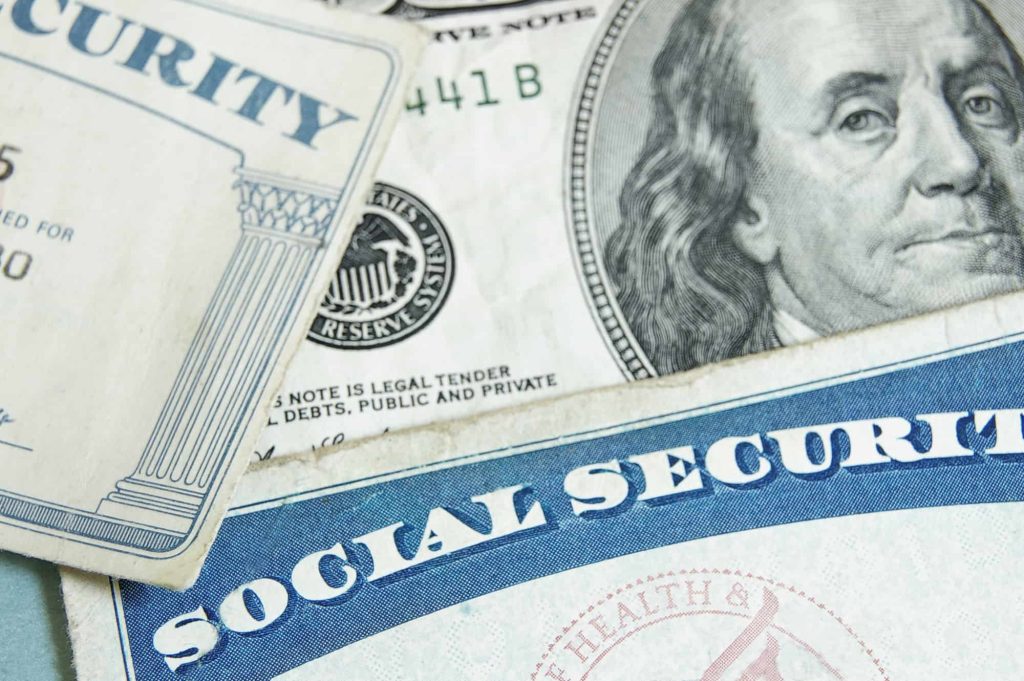
Congressman Thomas Massie (R-KY) reintroduced legislation last week that would eliminate income taxes on Social Security benefits.
According to a press statement from Massie, if passed, the Senior Citizens Tax Elimination Act (HR 1040) will amend the Internal Revenue Code of 1986 to terminate the inclusion of tier I railroad retirement benefits and Social Security benefits in an individual’s gross income. “As this legislation takes effect, seniors will notice their tax liability is significantly reduced and will no longer deal with the ‘double tax’ on their federally earned benefits,” Massie said.
According to the Congressional Research Service, before 1984, Social Security benefits were exempt from the federal income tax. “Congress then enacted legislation to tax a portion of those benefits, with the share gradually increasing as a person’s income rose above a specified income threshold.”
How Much Tax Savings If Social Security Benefits Were Excluded?
The Senior Citizens League (TSCL) estimates that eliminating taxes on Social Security benefits would save the typical senior household about $3,000 annually if implemented in 2025. “We estimate that a typical senior household would pay $3,940 in federal income taxes if Social Security benefits were excluded, compared to an estimated $7,022 under the current law—resulting in a savings of $3,082.”
“Eliminating taxes on Social Security benefits would be an excellent step to provide financial relief to American seniors, many of whom are struggling with a cost of living that is growing much faster than their incomes,” said TSCL Executive Director Shannon Benton. “It would also reduce double taxation, which is inherently unjust.”
“However, we need to do even more for low-income seniors whose dignity depends on Social Security payments that have already lost 20 percent of their buying power over the last 15 years, Benton said. “Many lower-income seniors already do not make enough to pay taxes on their Social Security benefits, and the only way to help them is by reforming Social Security’s COLAs.”
“Although seniors have already paid tax on their Social Security contributions via the payroll tax, they are still required to list these benefits as taxable income on their tax returns,” said Massie. “This is simply a way for Congress to obtain more revenue for the federal government at the expense of seniors who have already paid into Social Security. My bill would exempt Social Security retirement benefits from taxation and boost the retirement income of millions of older Americans.”
Impact on Cost-of-Living Adjustments (COLAs)
TSCL provided some insights on the impact of eliminating taxes on Social Security benefits, including:
“1. Eliminating taxes on Social Security benefits would relieve lagging COLAs. Estimated savings from the Senior Citizens Tax Elimination Act would make up for about 69 percent of the buying power Social Security payments have lost since 2010 due to inadequate COLAs. TSCL research estimates that the average yearly Social Security benefits for retired workers are worth approximately $4,442 less today than they were in 2010, after adjusting for inflation.
2. It would also reduce “double taxation” on seniors. Since Social Security beneficiaries have already paid tax on their contributions to Social Security through the payroll tax, they are essentially paying taxes on their benefits twice under current law.
3. Even if the law passed, many low-income seniors would still not see the difference. Seniors who earn below certain amounts- the most vulnerable—already do not pay taxes on their benefits. If it does not pass, the tax thresholds that have not been adjusted for inflation since 1984 will result in more low-income seniors paying taxes as annual COLAs accumulate.”
The Senior Citizens Tax Elimination Act was originally introduced in 2003 by Representative Ron Paul (R-TX). Rep. Massie has introduced this bill each Congress since taking office in 2012.
Original cosponsors include Rep. Andy Biggs (R-AZ), Rep. Lauren Boebert (R-CO), Rep. Tim Burchett (R-TN), Rep. Eric Burlison (R-MO), Rep. Ben Cline (R-VA), Rep. Michael Cloud (R-TX), Rep. Monica De La Cruz (R-TX), Rep. Brad Finstad (R-MN), Rep. Lance Gooden (R-TX), Rep. Paul Gosar (R-AZ), Rep. Mark Green (R-TN), Rep. Marjorie Taylor Greene (R-GA), Rep. Harriet Hageman (R-WY), Rep. Andy Harris (R-MD), Rep. Diana Harshbarger (R-TN), Rep. Anna Paulina Luna (R-FL), Rep. Cory Mills (R-FL), Rep. Barry Moore (R-AL), Rep. Ralph Norman (R-SC), Rep. Andy Ogles (R-TN), Rep. Scott Perry (R-PA), Rep. Chip Roy (R-TX), Rep. Martin Stutzman (R-IN), Rep. Tom Tiffany (R-WI), Rep. Jeff Van Drew (R-NJ), Rep. Derrick Van Orden (R-WI), Rep. Randy Weber (R-TX), Rep. Daniel Webster (R-FL), and Rep. Tony Wied (R-WI).
To read the full text of the bill, go here. (PDF)
